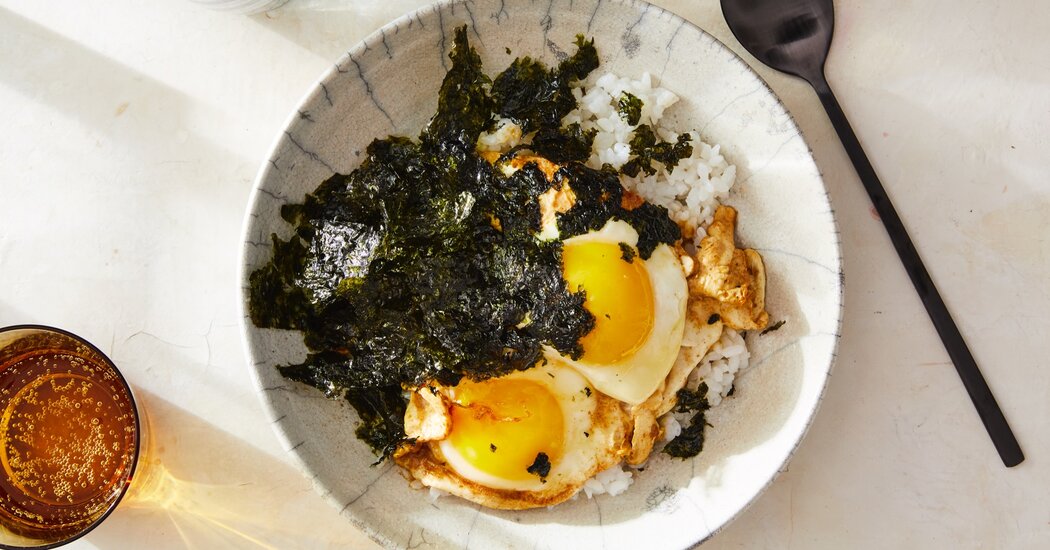
Many cultures have some variation of egg rice. It’s one of those dishes that you don’t really talk about because it’s so basic: fried eggs, white rice and something for seasoning. In South Korea, it’s called gyeran bap, which translates to “egg rice,” featuring soy sauce, sesame oil and often a touch of butter. In Japan, it’s tamago kake gohan (“egg over rice”), but in that version, the egg is cracked raw into a bowl of fresh, hot white rice, then fluffed with chopsticks into a creamy, comforting wonder. An Indonesian variation, nasi telur ceplok (“fried egg served over rice”), uses kecap manis, a molasses-thick sweet soy sauce. Puerto Rican arroz a caballo (“rice on horseback”) often features corned beef. Egg rice is kind of like a coffee order; everyone does it a little different. Some say they top theirs with furikake, scallions or chile crisp. The novelist Alexander Chee told me that his father used to make egg rice for him with the fried egg on the bottom and the fresh rice, straight out of the rice cooker, on top. “It was the only thing he could cook,” Chee said. That and fried vienna sausages.
Patrick Faloon, a scientist in Cambridge, Mass., cooks two eggs over easy and eats them with Kokuho Rose sushi rice sprinkled with everything-bagel seasoning. “As a single guy, I’d always have leftover rice, and cooking up a couple of eggs was quick for a weeknight meal,” he said. The inclusion of the seasoning happened naturally: “I figured it had sesame seeds so it should work, but the dried onion and salt definitely added more flavor than I expected. Also, adding it at the last minute gave a little texture.” It was about five years ago when Faloon discovered the combo, slowly building on it over time, depending on what he had in his pantry and fridge. These days, he piles on kimchi and roasted vegetables.
My mother used to fry the eggs in vegetable oil, cracking the yolk and flipping the egg so everything cooked through. Glistening white on matte yellow, fried eggs in our house always went with rice. But egg rice is one of those dishes that grows with you. As I got older and started making it for myself, I found that frying the eggs sunny-side up in a little butter meant that the butter had a chance to brown, adding that characteristic nuttiness, and the yolks stayed rich and runny, which I now prefer. Later, I learned that a dribble of soy sauce added directly to the pan gave the sauce a chance to bubble up and caramelize, creating a salty pool for the eggs to cook in, the whites puffing up and staining at their edges. You can fry eggs in almost anything, like sesame oil, ghee and even cream, but butter and soy sauce is a divine combination. A final shower of gim — roasted seaweed — amps up the umami in each bite. A single five-gram packet will do.
When Dang was pregnant, her doctor told her she had to stop eating runny egg yolks. This was more difficult for her than giving up caffeine or even carrying the baby, who is now 5 months old. “I thought about it every day,” she says. “It was the first thing I made for myself when I came home from the hospital. I was like, ‘I need a runny yolk, and I need it now.’”
Recipe: Gyeran Bap (Egg Rice)



